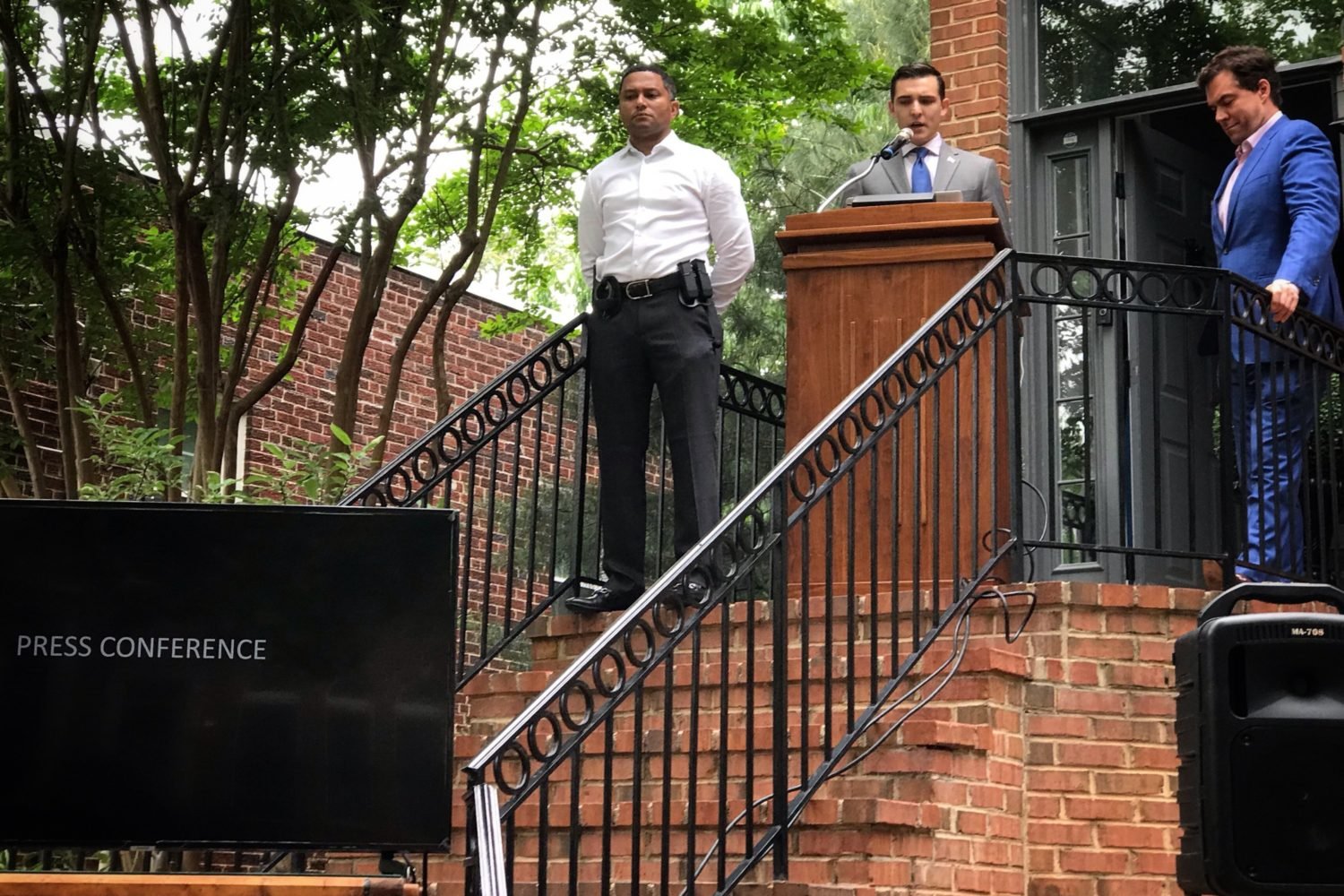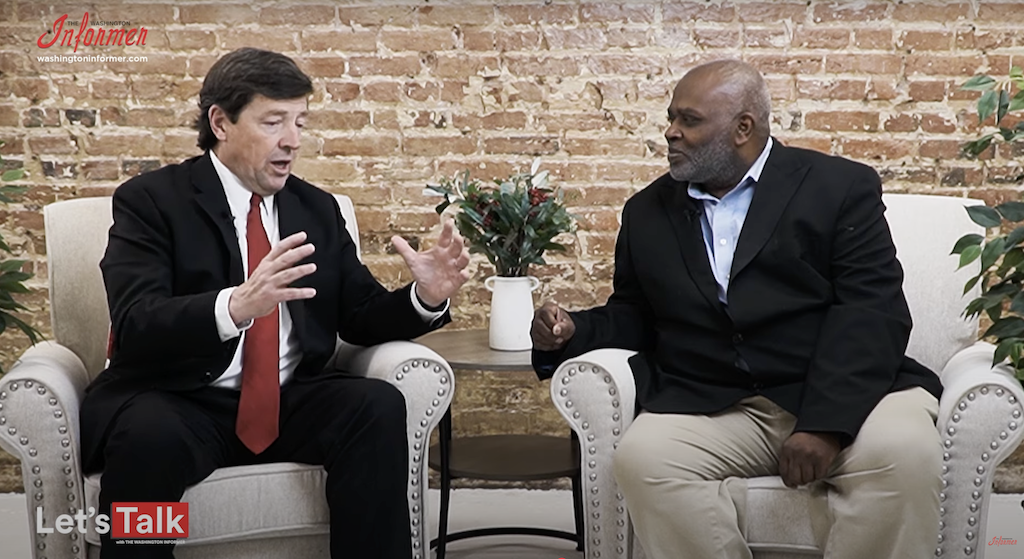This was a busy week under the tent at Trump Circus: The President cancelled travel plans over Greenland, pronounced himself the “Chosen One” of trade, and alleged that Google swung votes to Hillary Clinton in 2016.
But plenty happened deep inside the Beltway, too—in places where the most boring aspects of the federal government form the marrow of what’s being decided in Donald Trump’s Washington.
Intermittently, Washingtonian will compile the things happening inside the federal government—ie, our largest industry, the employer of untold thousands of our neighbors—beyond the glitzier headlines that typically accompany the White House. The result is a company town diary, crossed with a catalogue of norm erosions that situate Washington, and its residents, in the age of Trump.
***
Starving the beast. The White House’s campaign to undermine expert agencies turned a new corner this week. Agriculture Department researchers who chose to resign rather than relocate to Kansas City — a ploy that Mick Mulvaney privately admitted was actually aimed at obliterating the agency — got hosed yet again, when they learned their buyouts will be 40 percent of what the Trump administration promised.
The Interior Department, too, moved forward with plans to relocate hundreds of DC employees out West. Meanwhile, the Trump administration has simply refused to fill positions at the National Weather Service—oddly a growing bête noire of conservatives—where more than 400 vacancies are now reported.
Not to fear: The Trump administration announced a new rule permitting itself to promote senior officials without the authorization of a permanent agency head—which stands to normalize the vast number of “acting” heads and vacancies throughout the capital.
DOJ’s alt-right mailing list. The Department of Justice sent a daily news email to immigration court employees and judges across the country that included a news item from the website VDare, a fringe website that advocates white nationalism and the intellectual inferiority of minorities, and whose editor once said that “Hispanics do specialize in rape, particularly of children.” A Justice Department spokeswoman subsequently said the news piece should not have been circulated.
The VA forsakes its own. Unlike other agencies, the VA took no action to protect veterans from the Trump’s crackdown on poor immigrants, according to documents obtained by ProPublica. While active-duty military can accept public benefits and still receive a green card after their service, immigrant veterans who have already concluded their service are out of luck.
Trump has a whistleblower problem. House Ways and Means Chairman Richard Neal claims an anonymous federal worker has provided credible “evidence of possible misconduct” in a White House effort to influence the IRS’s audit of Trump’s taxes. The revelation may give Neal a legal boost in his effort to obtain Trump’s tax returns.
EPA disarms itself. The Department of Justice banned the use of SEPs—supplemental environmental projects—a kind of community service sentence for polluters, and a key legal tool the EPA has used to address infractions against the Clean Water Act and the Clean Air Act for 25 years.
NORM EROSION OF THE WEEK: Is the FEC doing its job? The Federal Election Commission is known for overseeing campaign finance limits and reporting political contributions. But it’s also a law enforcement agency with investigative and subpoena power, charged with carrying out the Federal Election Campaign Act.
The FEC recently considered whether to launch an investigation into one of the most serious allegations it has ever considered: Whether the Trump campaign in 2016 received laundered funds from a Russian banker, using the NRA as a pass-through entity. McClatchy has long reported the existence of an FBI probe investigating the matter.
Nevertheless, the FEC’s two Republican appointees stonewalled the investigation—leading Chair Ellen Weintraub, a Democrat who voted in favor of the move, to pen a formal statement that panned her colleagues for “abandonment of the Commission’s basic duty.”
In a condensed Q-A, Weintraub argues that foreign money will be a serious vulnerability to American election security ahead of 2020.
Washingtonian Magazine: You say the Republicans use this kind of “evidence-blocking play” frequently.
Ellen Weintraub: This is not, unfortunately, new. Since an [action] requires four votes, they won’t agree to start investigations unless they have sufficient evidence…it has to be already “proven” before we can even start an investigation. Which is backward.
What would it take to find ‘sufficient evidence’ that Russians were funneling money through the NRA?
It’s literally a phone call. Our staff could have called up the FBI and asked them whether there was any validity to this. My [Republican] colleagues said, ‘Well, we don’t believe it. We don’t believe the FBI was investigating.’ But there was a way of finding out: We could have called up and asked. I asked for us to do that. They [the Republicans] said no.
As I said, this is part of a long-term, broader strategy to try to reduce the impact of this agency, to reduce our enforcement footprint. If you don’t ask questions, then you get to say, “Well, we don’t have enough information to do [an investigation].”
What does this mean for possible election meddling in 2020?
I’m extremely frustrated. We can’t take even the simplest steps to secure the vulnerabilities in our system, and make sure foreign money isn’t creeping in through dark money vehicles. Over the last three years, I introduced I-don’t-know-how-many suggestions of how the FEC could tighten up its rules. The only one that got any traction whatsoever were rules on disclaimers of certain ads on the Internet—just forcing people to say who paid for the ad. A couple years ago, I suggested we take up the issue—we got literally hundreds of thousands of public comments in support. It would be a small step in the right direction. And this [rule] has been kicking around for years now. I can’t even get them to focus on the issue.
You know, 2008 caused an inflection point in the agency. That year, one of the commissioners who came on board was Don McGahn—his first government job was commissioner at the FEC for five years, before he took on Donald Trump as a client, and became White House counsel. That’s when he brought his deregulatory agenda to the government writ large. But the FEC was, in some sense, the trying-out place of a particular deregulatory agenda—to undermine the administrative state. And I fear that’s what we’re seeing here.
SWAMP BONUS: Prick Gates. As the trial of former Obama White House Counsel Greg Craig unfolded this week, court listeners learned about the colorful nickname that Manafort’s partners had for Rick Gates. Gates’ nom de guerre was “(P)rick Gates,” according to testimony from a crucial witness in the case. “That was what we called him,” the witness, Jonathan Hawker, said. “I’m afraid it was a routine name for the man.”















